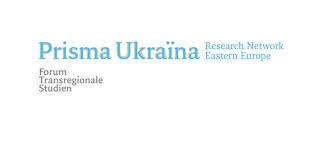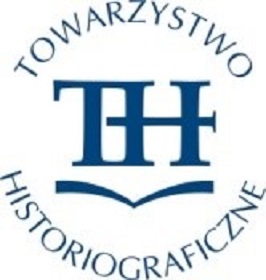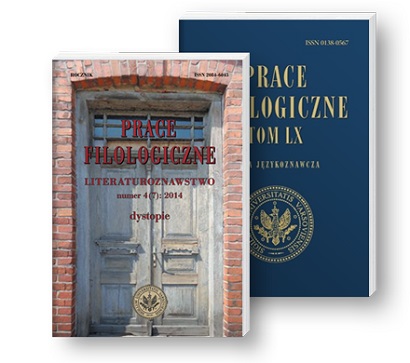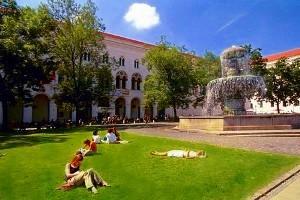Оголошення

CALL FOR APPLICATIONS: Petro Jacyk Post-Doctoral Fellowship in Ukrainian Politics, Culture, and Society, 2018-2019
The Petro Jacyk Education Foundation and the Centre for European, Russian, and Eurasian Studies (CERES) at University of Toronto are accepting applications for the Petro Jacyk Post-Doctoral Fellowship in Ukrainian Politics, Culture, and Society for the 2018-2019 academic year. The objective of the Post-Doctoral Fellowship is to support annually one of the most promising junior scholars studying contemporary Ukraine and thereby to advance academic understanding of Ukrainian politics, culture, and society. The Fellowship is made possible through the generous support of the Petro Jacyk Education Foundation.
Description:
The Petro Jacyk Post-Doctoral Fellowship has both research and teaching components. The successful candidate will spend most of the Fellowship period in residence at CERES and a period of time in Ukraine (typically 2-4 weeks), conducting research and giving lecture(s) at educational institutions. While at CERES, the Fellow is expected to devote her/his time preparing his/her dissertation for publication and/or to start a new research project. The Fellow will work closely with an appointed research supervisor and participate in activities of the Petro Jacyk Program for the Study of Ukraine. This will include guest lectures, workshops, and conferences. In addition to research, he/she is expected to teach a one-semester course (usually a seminar) that deals with contemporary Ukraine.
Eligibility:
The Petro Jacyk Post-Doctoral Fellowship is available to junior scholars in the social sciences and humanities with a research and teaching focus on contemporary Ukraine. The fellowship is open to recently awarded PhDs (persons holding doctorates for no more than three years at the time of application). The program is advertised internationally and does not have any restrictions with respect to citizenship. However, the successful candidate who is not Canadian will have to meet the necessary requirements in order to obtain a work permit as mandated by Citizenship and Immigration Canada, prior to starting the fellowship. The successful candidate will also have to have proof of doctoral degree by June 30, 2018.
Fellowship tenure:
The Fellowship runs for twelve months.
Funding:
The Fellowship holder will receive approximately CAD $41,500, which includes payment for teaching a semester-long course, and separately an allowance of up to CAD $2,500 for travel expenses to Ukraine for research purposes.
Application Procedure:
Applications with all required attachments should be received by February 1, 2018. The application form can be downloaded from the website: http://sites.utoronto.ca/jacyk/postdoctoral%20fellowship/call%20for%20applications.htm Please send applications by email to: the Foundation at pjef@bellnet.ca AND the Petro Jacyk Program for the Study of Ukraine at the University of Toronto at jacyk.program@utoronto.ca simultaneously. Three letters of recommendation should be e-mailed directly to both email addresses either by the referees or by confidential graduate dossier services. Emailed letters will be treated as confidential. Please make sure that you receive an acknowledgement of your application’s receipt by email. In exceptional circumstances (when emailing is not possible), application and letters can be sent by express mail to the address indicated below (please call to confirm delivery).
Mailing address:
Petro Jacyk Program for the Study of Ukraine Centre for European, Russian, and Eurasian Studies Munk School of Global Affairs University of Toronto 1 Devonshire Place Toronto, Ontario M5S 3K7 Canada Tel: (416) 946-8938 Fax: (416) 946-8939 Short-listed candidates may be contacted for an interview. Inquiries may be sent by e-mail to jacyk.program@utoronto.ca
For more information on the post-doctoral fellowship, please visit our website: http://sites.utoronto.ca/jacyk/postdoctoral%20fellowship/index.htm
Bayduza Post-Doctoral Research Fellowship for the Study of Modern and Contemporary Ukraine 2018-2019

A Bayduza Post-Doctoral Research Fellowship in the Humanities and Social Sciences will be offered in 2018–19 by the Canadian Institute of Ukrainian Studies to support the study of modern and contemporary Ukraine. The fellowship is for one year (with the possibility of renewal, subject to review). Although all applications in fields associated with the humanities and social sciences will be considered, research proposals in the areas of identities, nationalism, regions, borders, social values, historical politics and memory, change, and conflict, will be given preference.
To qualify, applicants must have received a PhD (or Candidate of Sciences degree from Ukraine or another post-Soviet country) within the past four years at the time of application. Applicants who are scheduled to receive their degree by the end of June 2018 are also eligible to apply, if they submit confirmatory documents. The successful applicant will be expected to take up the post-doctoral appointment at CIUS from 1 September 2018, but no later than 30 September 2018. In addition to working on a research project, the Bayduza Research Fellow will be expected to assist and participate in the overall program planning and activities of CIUS.
This competition is open to Canadian citizens, permanent residents of Canada, and foreign nationals. The annual stipend is C$38,000. In addition to the stipend, the award includes economy airfare to and from Edmonton, and supplemental health benefits. An additional C$2,000 is available for research-related expenses. Recipients of the Bayduza Fellowship may not hold another fellowship concurrently.
The Bayduza Fellowship is funded by Dr. Jeanette Bayduza.
Deadline: 15 February 2018
Other funding opportunities: https://www.ualberta.ca/canadian-institute-of-ukrainian-studies/funding-and-awards
The Institute for Human Sciences (Institut fur die Wissenschaften vom Menschen, IWM) in Vienna has published another new call for application:
Ukraine in European Dialogue Junior Visiting Fellowships 2018/2019
Deadline for application: March 18, 2018
This fellowship program aims to support the research of Ukrainian scholars who are completing or have recently completed doctoral studies in a Ukrainian institution of higher education.
It offers access to the resources of the Institute for Human Sciences (IWM) in Vienna to younger researchers who have demonstrated exceptional talent to allow them to work on a research project of their own choice. The fellowships are open to all academic disciplines in the social sciences (including history).
Fellows will be invited to spend a six-month term between July 2018 and June 2019 at the IWM and receive a stipend of EUR 1,800 per month to cover all expenses related to the stay. In addition, the IWM provides office space, access to e-mail and internet, research and administrative facilities as well as other services free of charge.
Please visit www.iwm.at/fellowships/ukraine-in-european-dialogue to see all relevant details about eligibility, application procedure etc.
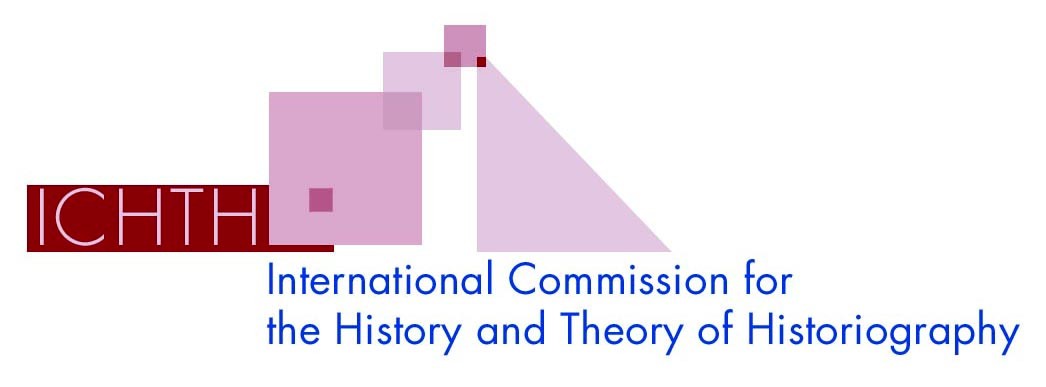
The ICHTH Doctoral Dissertation Prize
for the History and Theory of Historiography
The ICHTH Doctoral Dissertation Prize ($500) is offered for a doctoral dissertation on any subject in the following fields:
historical theory, history of historiography, philosophy of history, historical methodology and historical culture.
Submissions are now open for
2017 ICHTH DOCTORAL DISSERTATION PRIZE
(defended in 2015, 2016 and 2017).
SUBMISSION REQUIREMENTS
- a detailed CV and list of publications
- the dissertation in digital format and/or in printed form (if published),
- an extensive summary of minimum 2000 words (approximately 6 pages) in English IF the dissertation is not written in English.
All submissions should be sent to Chair of the Selection Committee – Professor Chris Lorenz at the following e-mail address: cfg.lorenz@gmail.com
The deadline for submission: 31st March 2018.

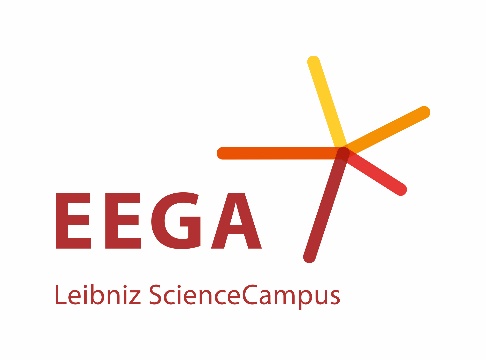
Leibniz ScienceCampus
Eastern Europe – Global Area (EEGA)
Call for Applications: Funding of PhD Candidates
Deadline for Applications: 21 December 2017
Start of Funding: (planned) 1 February 2018
Leibniz ScienceCampus „Eastern Europe – Global Area“(EEGA; www.leibniz-eega.de) deals with the repositioning of Eastern Europe in historical and current processes of globalisation. Eastern Europe´s geopolitical order and the transregional self-placement of Eastern Europe and the bordering areas of Central Asia are currently challenged in a specific manner by the project of a New Silk Road (“One belt, one road”). This investment programme proposed by the Chinese government addresses the expansion of yet insufficient infrastructures and the stimulation of transregional division of work as well as the integration of the economic area.
Leibniz ScienceCampus and Leipzig University advertise 2 positions for PhD candidates (50% TVL-13, 3 years) for the research of the project outlined above, its contemporary historical roots and its current social, political and cultural implications. We expect research proposals with a distinctly geographical and historical focus, and a design that enriches the overall question of the ScienceCampus. The graduation shall take place in human geography or global studies.
Applicants are requested to submit their CV and an exposé (3000 words) outlining the research question, the positioning within the international state of research, the operationalisation of the planned research as well as a time and work schedule to:
Melanie Mienert (leibniz-eega@ifl-leipzig.de)
Contacting the EEGA coordinator in advance to the application is recommended. Successful applicants will be admitted to Leipzig University´s Graduate School Global and Area Studies and will participate in its structured qualification programme. (GSGAS; http://home.uni-leipzig.de/~gsgas/). Residency in Leipzig during the participation in Leibniz ScienceCampus EEGA is mandatory.
Contact
Leibniz ScienceCampus Eastern Europe – Global Area (EEGA)
c/o Leibniz Institute for Regional Geography
Schongauerstraße 9, 04328 Leipzig, Germany
Phone +49 341 60055-266
Fax +49 341 60055-198
leibniz-eega@ifl-leipzig.de
Coordination: Melanie Mienert
Spokespersons of the Steering Committee: Prof. Dr. Sebastian Lentz, Prof. Dr. Matthias Middell
-----------------------------------------------------------------

Leibniz ScienceCampus
Eastern Europe – Global Area (EEGA)
Call for Applications: Doktorandenförderplätze
Bewerbungsfrist: 21. Dezember 2017
Start: voraussichtlich 1. Februar 2018
Der Leibniz-WissenschaftsCampus "Eastern Europe - Global Area" (EEGA; siehe www.leibniz-eega.de) beschäftigt sich mit der Neupositionierung des östlichen Europa in den historischen und aktuellen Globalisierungsprozessen. Die geopolitische Ordnung des östlichen Europa und die transregionale Selbstverortung Osteuropas sowie des daran angrenzenden zentralasiatischen Gebietes wird gegenwärtig durch das Projekt einer Neuen Seidenstraße ("One belt, one road") in besonderer Weise herausgefordert. Das von der chinesischen Führung vorgeschlagene Investitionsprogramm zielt auf den Ausbau bislang ungenügender Infrastrukturen und eine dadurch mögliche transregionale Arbeitsteilung bzw. wirtschaftsräumliche Integration.
Der Leibniz-WissenschaftsCampus und die Universität Leipzig schreiben 2 Doktorandenstellen (50% TVL-13; Laufzeit 3 Jahre) für die Untersuchung dieses Projektes, seiner zeithistorischen Wurzeln und seiner aktuellen sozialen, politischen und kulturellen Implikationen aus. Wir erwarten Forschungsvorschläge mit einem klaren geografischen und zeithistorischen Fokus und einem Design, das einen Ertrag zur Gesamtfragestellung des WissenschaftsCampus ausweist. Die Promotion soll entweder im Fach Humangeografie oder im Fach Global Studies erfolgen.
Bewerber/innen werden gebeten, ihren CV sowie ein Exposé im Umfang von 3000 Worten mit Aussagen zur Forschungsfrage, zu deren Verankerung im aktuellen internationalen Forschungsstand, zur Operationalisierung der beabsichtigten Untersuchung, zu Arbeits- und Zeitplan bis zum 21.12.2017 einzureichen an:
Frau Melanie Mienert (leibniz-eega@ifl-leipzig.de)
Es wird dazu geraten, im Vorfeld der Bewerbung Kontakt mit der Koordinatorin des WissenschaftsCampus aufzunehmen. Die erfolgreichen Bewerber/innen werden in die Graduate School Global and Area Studies der Universität Leipzig aufgenommen und nehmen am dortigen strukturierten Qualifizierungsprogramm teil. (siehe http://home.uni-leipzig.de/~gsgas/). Es wird erwartet, dass die ausgewählten Bewerber/innen der Residenzpflicht für die Dauer ihrer Beteiligung am Leibniz-WissenschaftsCampus EEGA nachkommen.
Contact
Leibniz ScienceCampus Eastern Europe – Global Area (EEGA)
c/o Leibniz Institute for Regional Geography
Schongauerstraße 9, 04328 Leipzig, Germany
Phone +49 341 60055-266
Fax +49 341 60055-198
leibniz-eega@ifl-leipzig.de
Coordination: Melanie Mienert
Spokespersons of the Steering Committee: Prof. Dr. Sebastian Lentz, Prof. Dr. Matthias Middell

Petro Jacyk Visiting Scholars Program 2018-2019
Scholars studying Ukraine outside Ontario are invited to apply for appointments as a Petro Jacyk Visiting Scholars at the Centre for European, Russian, and Eurasian Studies (CERES) at the University of Toronto for the 2018-2019 academic year. The appointees will conduct research and interact with Canadian scholars during their stay at CERES. They will also be invited to give a presentation on the topic of their research and are expected to take part in relevant scholarly events. As a rule, visits are scheduled during the fall and winter sessions of the university, that is between September and April.
In addition, each year the Petro Jacyk Program—in partnership with the Holodomor Research and Education Consortium (HREC)—may support one visiting scholar whose research relates to the Holodomor. Successful applicants will benefit from interaction with not only scholars in the University of Toronto community but also those who are involved in HREC projects. Visiting scholars will have access to the archives of the Ukrainian Canadian Research and Documentation Centre, where HREC is located (a ten-minute walk from CERES), archives that include unpublished eyewitness accounts of the Holodomor, as well as the extensive Holodomor microfilm collection from the Central State Archive of Popular Organizations (Kyiv) at the University of Toronto Library. HREC is a project of the Canadian Institute of Ukrainian Studies (University of Alberta).
Eligibility:
Petro Jacyk Visiting Scholars program is open to scholars at all stages of their careers working in the social sciences and humanities, including recent PhD or kandydat nauk degree recipients. Advanced doctoral students may also be considered. The Petro Jacyk Visiting Scholars Program especially welcomes applications from scholars whose work relates to its thematic focus "Challenges of Independent Ukraine." This focus includes state- and institution-building in Ukraine; law and governance; problems of democratization; education, culture and identity of the nation and ethnic groups in Ukraine; history and the imperial past; and foreign policy and international relations. Solid knowledge of English is essential for successful participation in the program. Invitations to successful applicants are conditional upon applicants’ ability to fulfill the requirements for entering Canada as set by Citizenship and Immigration Canada.
Funding: The following cost will be covered by the Petro Jacyk Program: (1) lowest round-trip economy airfare to the maximum of CAD $1,200; (2) visa costs if applicable; (3) medical insurance for the approved stay at the University of Toronto; (4) up to $20 per day for accommodation for up to 56 days upon submission of appropriate receipts; (5) allowance calculated at a rate of CAD $55/full day up to the maximum of CAD$3,080 for 56 full days at CERES. The minimum length of stay at CERES for Petro Jacyk Visiting Professors and Petro Jacyk Visiting Post-Doctoral Fellows will be 28 days. Successful applicants who are advanced doctoral students will spend one term at CERES.
The program will provide shared office space and access to the university library. Upon request, it may also assist the appointees in finding a reasonably priced accommodation.
Application Procedure:
Completed applications (MS Word version; Adobe Acrobat PDF version) should be received along with:
- a two-page description of their research proposal (double-spaced);
- a curriculum vitae;
- two confidential letters of reference.
In the cover letter, please indicate the proposed length and the approximate starting date of your stay. You may identify a CERES faculty member who, in your opinion, could provide guidance for you during your tenure at the University of Toronto (you do not need to contact this faculty member personally). Otherwise, a faculty member will be assigned by the selection committee.
Applications should be sent electronically to jacyk.program@utoronto.ca. The two referees should email their letters directly to the same email address. If sending the letter of reference electronically is not possible, your referee should mail a hard copy of the reference in a sealed and signed envelope to the address indicated below.
All application materials, including the letters of reference, must be in English. Letters of reference which are not in English must be translated by a qualified translator or agency, and submitted together with the original letter by the referee.
Mailing Address:
Petro Jacyk Program for the Study of Ukraine
c/o Olga Kesarchuk
Centre for European, Russian and Eurasian Studies
Munk School of Global Affairs
University of Toronto
1 Devonshire Place Toronto, ON
M5S 3K7 Canada
Deadline:
All documents should be received by February 1, 2018
For more information regarding the Petro Jacyk Program for the Study of Ukraine and the Petro Jacyk Visiting Scholars Program, please visit our website: http://sites.utoronto.ca/jacyk/index.html

CALL FOR APPLICATIONS:
Petro Jacyk Post-Doctoral Fellowship in Ukrainian Politics, Culture, and Society, 2018-2019
The Petro Jacyk Education Foundation and the Centre for European, Russian, and Eurasian Studies (CERES) at University of Toronto are accepting applications for the Petro Jacyk Post-Doctoral Fellowship in Ukrainian Politics, Culture, and Society for the 2018-2019 academic year. The objective of the Post-Doctoral Fellowship is to support annually one of the most promising junior scholars studying contemporary Ukraine and thereby to advance academic understanding of Ukrainian politics, culture, and society. The Fellowship is made possible through the generous support of the Petro Jacyk Education Foundation.
Description:
The Petro Jacyk Post-Doctoral Fellowship has both research and teaching components. The successful candidate will spend most of the Fellowship period in residence at CERES and a period of time in Ukraine (typically 2-4 weeks), conducting research and giving lecture(s) at educational institutions. While at CERES, the Fellow is expected to devote her/his time preparing his/her dissertation for publication and/or to start a new research project. The Fellow will work closely with an appointed research supervisor and participate in activities of the Petro Jacyk Program for the Study of Ukraine. This will include guest lectures, workshops, and conferences. In addition to research, he/she is expected to teach a one-semester course (usually a seminar) that deals with contemporary Ukraine.
Eligibility:
The Petro Jacyk Post-Doctoral Fellowship is available to junior scholars in the social sciences and humanities with a research and teaching focus on contemporary Ukraine. The fellowship is open to recently awarded PhDs (persons holding doctorates for no more than three years at the time of application). The program is advertised internationally and does not have any restrictions with respect to citizenship. However, the successful candidate who is not Canadian will have to meet the necessary requirements in order to obtain a work permit as mandated by Citizenship and Immigration Canada, prior to starting the fellowship. The successful candidate will also have to have proof of doctoral degree by June 30, 2018.
Fellowship tenure:
The Fellowship runs for twelve months.
Funding:
The Fellowship holder will receive approximately CAD $41,500, which includes payment for teaching a semester-long course, and separately an allowance of up to CAD $2,500 for travel expenses to Ukraine for research purposes.
Application Procedure:
Applications with all required attachments should be received by February 1, 2018. The application form can be downloaded from the website: http://sites.utoronto.ca/jacyk/postdoctoral%20fellowship/call%20for%20applications.htm
Please send applications by email to: the Foundation at pjef@bellnet.ca AND the Petro Jacyk Program for the Study of Ukraine at the University of Toronto at jacyk.program@utoronto.ca simultaneously. Three letters of recommendation should be e-mailed directly to both email addresses either by the referees or by confidential graduate dossier services. Emailed letters will be treated as confidential. Please make sure that you receive an acknowledgement of your application’s receipt by email. In exceptional circumstances (when emailing is not possible), application and letters can be sent by express mail to the address indicated below (please call to confirm delivery).
Mailing address:
Petro Jacyk Program for the Study of Ukraine Centre for European, Russian, and Eurasian Studies Munk School of Global Affairs University of Toronto 1 Devonshire Place Toronto, Ontario M5S 3K7 Canada Tel: (416) 946-8938 Fax: (416) 946-8939 Short-listed candidates may be contacted for an interview. Inquiries may be sent by e-mail to jacyk.program@utoronto.ca
For more information on the post-doctoral fellowship, please visit our website: http://sites.utoronto.ca/jacyk/postdoctoral%20fellowship/index.htm

Call for Papers for the Conference:
What Remains of Galicia? Continuities – Ruptures – Perspectives
Date: April 19 – 21, 2018
Place: Vienna, Austria
Organizer: the PhD program “Austrian Galicia and its multicultural heritage” (University of Vienna) in cooperation with the Institute for Human Sciences and its program „Ukraine in European Dialogue“
Proposal Deadline: September 30, 2017
During the last decades the former Austrian crown land of Galicia and Lodomeria has shifted more and more into the public and scientific focus not only in Austria. The PhD program “Austrian Galicia and its multicultural heritage” at the University of Vienna has spent more than a decade examining interdisciplinary scientific questions concerning the interdependent cultures, literatures, languages, religions, economies, ethnic and social groups of the Austrian crown land of Galicia as well as the continued effect of the Galician heritage in Ukraine, Poland, Austria and among the worldwide emigration to the present day.
From the first partition of the Polish-Lithuanian Commonwealth until the end of World War I in 1918 the Kingdom of Galicia and Lodomeria was one of the crown lands of Austria-Hungary. But with the collapse of the Habsburg Monarchy in 1918 that constitutional and administrative entity disappeared from the map of Europe. During the two world wars as well as the system change from socialism to capitalism the territory of historical Galicia was subjected time and again to radical transformations that pervaded all aspects of life of its formerly multicultural society and brought about a profound change in this society itself. One century after the end of Galicia as a territorial entity, this conference aims to explore the question of what remains of the crown land that existed for almost 150 years as well as of its multicultural living environment, what was lost through historical transformation processes and which new perspectives can be taken in research on Galicia. In this context the conference focuses especially on the following aspects:
Continuities:
After the collapse of the Danube Monarchy the heritage of Galicia continued to have an impact on culture and society. For instance, the idea of Galicia being the cradle of the Ukrainian national movement, the “Ukrainian Piedmont”, has been a recurring thought from the times of the Austrian crown land of Galicia to present times, much as has been the close link between the Greek Catholic Church and Ukrainian nation-building in Galicia. Poland,
too, in its claims to Galicia invoked the centuries-long history of Polish culture in the region and hence its “historical rights”.
Ruptures:
In the course of history Galicia was the site of many reform projects and witness to historical as well as social upheavals. On the one hand, these included the domestic reforms of the Habsburgs in the province on the periphery of the empire such as, for example, church reforms or the introduction, on a trial basis, of a new Civil Law Code before it was developed into the Austrian Civil Code that is still valid today in Austria. On the other hand, Galicia was also the scene of revolutions and large-scale reorganisation projects. The territorial reorganisation of Europe after World War I and World War II as well as the post-socialist transformation have also left their mark.
Perspectives:
In a multicultural society multiple perspectives exist reciprocally alongside each other. In individual communities, sometimes diametrically opposed perceptions of cities, landscapes and occurrences arise that increase the already rich cultural heritage of the region even more.
But the question of perspectives also directs the focus toward the future: In what ways does the heritage of historical Galicia continue to have an impact up to the present day? What is its influence on the culture and society of today’s Poland and Ukraine? Which future prospects opened up for the territory of historical Galicia at times of historical upheaval? Despite the extensive scholarly discussion of the subject of Galicia, it still offers space for new research perspectives to which the conference wants to devote special attention.
In accordance with the orientation of the PhD program the conference is to be interdisciplinary. Therefore we are looking forward to contributions from various disciplines dealing with historical Galicia as well as today’s western Ukraine and southern Poland, with the focus on the following aspects: everyday life, gender, kinship, the church as an institution, migration, nation-building, post-socialism, languages, the city as a place of remembrance, transformation processes, the environment, administration/law/state entities, science and scholarship.
Proposal Abstracts: 250-300 words
Language: German or English
File name of the proposals: last name_first name_institution.doc(x)
Proposals, consisting of an abstract, brief CV and contact details (e-mail address, telephone number, postal address), are to be sent by September 30, 2017, to the following address:
konferenz.galizien2018@univie.ac.at
Conference languages are German and English (without simultaneous translation). Accommodation costs will be covered by the organizer, travel costs will be refunded up to the following amounts: from Europe up to 250 euros, for participants from Israel up to 350 euros, for participants from North and South America and Asia up to 650 euros. Following the conference the publication of the contributions in a conference volume is planned.
You can find information about the conference also on our website:
https://dk-galizien.univie.ac.at/konferenz-was-bleibt-von-galizien-2018/
For more information about the PhD program “Austrian Galicia and its multicultural heritage”: https://dk-galizien.univie.ac.at/home/


